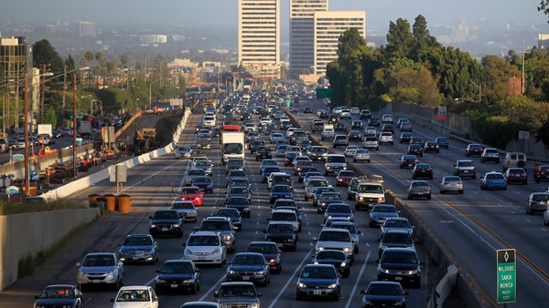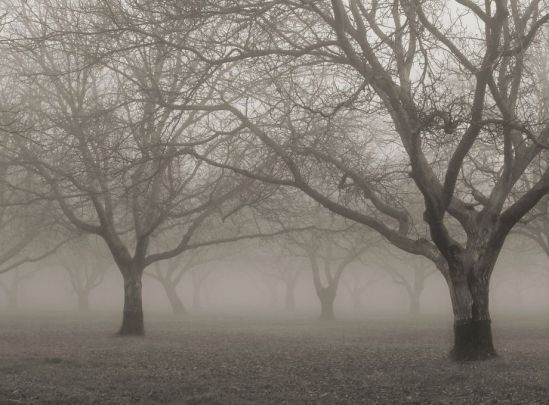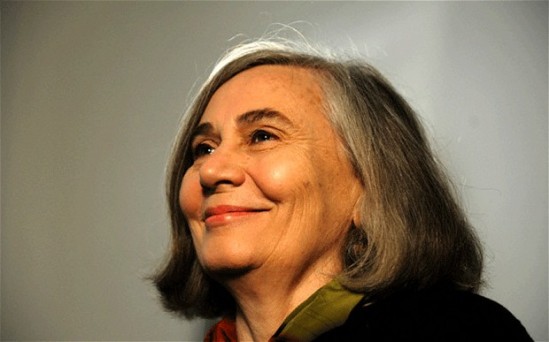
Monthly Archives: March 2016
The article of affection: Southern Californians and their freeways

Conversations among thoughtful people have explained the words Southern Californians use for their freeways. They were so accustomed to using names–the Pacific Coast Highway, the Santa Ana Freeway, etc.–that they kept the “the” when numbers became conventional. I’ve argued, true Northern Californian that I am, that this is the wrong way to do things. Sometimes, I’ve even felt shame when I’ve let it slip out, like this morning when I said, “Isn’t Ashland (of all places) on the 5?” I cringed.
In Northern California, along with the rest of the country, I should say, the way we refer to our freeways is like a mark of familiarity, even of affection. We say “Get on 80,” as if it were as simple as resuming a conversation with someone already in the room, “Stay on 49” as if we were looking for a place to crash for the night, “Take 101 all the way down,” in the same voice that we would say “Take Mom to the grocery store.” The highways are present with us.

Highway 99, for instance. It clings to the morning mist and sculpts itself in wide curves through the San Joaquin Valley’s flatness. It’s also a wild ride. If it’s not the traffic, it’s the construction that was abandoned five years ago. “Pray for me, I’m taking 99 to Fresno,” we say. #99problems (@Jay-Z)
Or 70. It snakes up eastward out of the yellow valley, losing itself in chilling mountain streams and cliff shadows before bubbling out into the windswept high dessert that takes its travelers back and forth from Reno. Every moment of 70 in California is an experience of loneliness, even Marysville.
Or take 5. Maybe I-5–same vowel sound–but never “the 5.” It’s ugly, it’s massive, and it isn’t going anywhere, which is as much a reason to hit the road as it is to wait for the right time at the start of the morning.
Because the highways are always with us, writhing along with our economies and connections or converting our spirit of adventure into a roar of fossil fuels, trash, and rumpled billboards, we don’t need to insert extra words, extra letters, extra articles to call them by their own name.
A definite argument
And yet I wonder if the Southern Californian reliance on the “the” is not another form of affection for the well-known highways. I say “highways” in plural, because it seems that any place down south, however secluded, is in constant relationship with the network. No man is a Joshua Tree unto himself.
When we say “the,” when we use the definite article, we imply that we know the thing we are speaking of, and not only that, but we expect others to share this knowledge. “Take the book off the bookshelf and put it in the car.” To say this is to welcome someone into our home, into our bedroom, to take something we have touched with our hands and take it to some common space. “Look at the bird,” we say as if speaking to a child. It doesn’t matter if we do not what kind of bird it is, or where it came from–just that in this moment the two of us behold the same vision, or (can I say it?) see the same truth.
There is an intimacy in the word “the.” It is not the same closeness, the full-breathed familiarity of Northern California. Its intimacy is in the precision, the exacting of time and space within a community, not of searching but of finding some thing to latch onto. And in Southern California, where talking about traffic has become as traditional as talking about the weather (in places where the weather changes throughout the day and week), saying “the” is the very consciousness of articulating, in a dizzying world of concrete, and metal, and heat, “This is the direction you need to take to get to the place you need to be.”
The “the”: I may dispute the clunkiness, the weightiness, and the narrowness, but I do not deny it a place, especially if it comes from such a measureless source of affection that all Californians share–for better, for worse–for our freeways.

